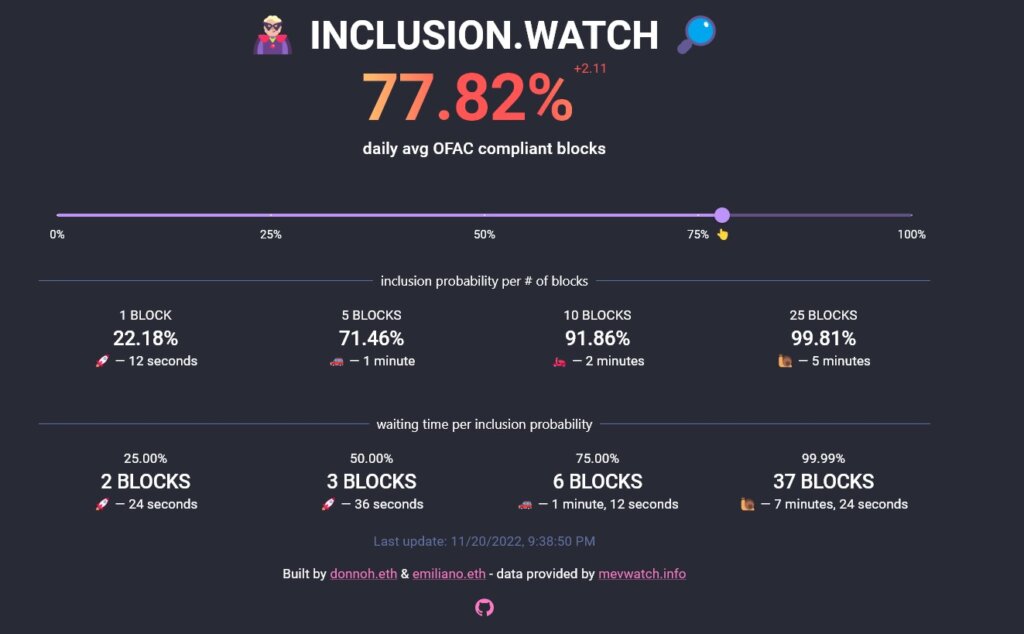As the Office of Foreign Assets (OFAC) compliance levels continue to increase on the Ethereum blockchain, a researcher for Scroll ZKp attested to the fact that a censored transaction will still confirm faster on the ETH chain as opposed to a Bitcoin (BTC) blockchain transaction.
If 99% of Ethereum validators were OFAC compliant, a censored transaction would still confirm faster than a Bitcoin transaction.
— pseudo 📜 (@pseudotheos) November 18, 2022
An Ethereum (ETH) block occurs every 13 seconds on average and hundreds of blocks are being validated hourly. Should ETH validators become 99% OFAC compliant, transactions will take an average of three hours — but will still be included in blocks.
Data from inclusion.watch allows visitors to adjust the level of censorship/compliance on the Ethereum network to ascertain the time for a block that is censored by MEV-boost relays to be included in a block.
As of press time, the average percentage of OFAC-compliant blocks produced has reached 77.82% meaning that it will take over seven minutes for a non-compliant transaction to be included in a block with absolute certainty.

Justin Bons, the CIO of Cyber Capital, contended that a Bitcoin block can take over an hour to process, while a block occurs every 13 seconds on Ethereum. However, the average time to produce a block on Bitcoin has not broken 12 seconds in the last quarter as stated by CryptoSlate’s Akiba in the post below.
I mean it *can* take hours on BTC but that’s an outlier.
The fact that at 99% OFAC complaint a txs will still be included with 99.99% certainty is super impressive!
That’s doesn’t mean it will be faster than BTC still though… got to be accurate here. pic.twitter.com/XdIRpsq7YI
— Akiba.lens (@akibablade) November 20, 2022
By using the newly created inclusion.watch, which builds on the infamous MEVwatch website, it is possible to review the inclusion probability per number of blocks on a 99.08% OFAC-compliant ETH…
Click Here to Read the Full Original Article at Ethereum (ETH) News | CryptoSlate…
























